
© Shutterstock
For over two decades, the Caliph of the Ahmadiyya Muslim Community, Hazrat Mirza Masroor Ahmad (aba) has been warning the world of the terrible global destruction it is hurtling towards if it continues on its trajectory. In the April 2024 edition of The Review of Religions, we presented a selection of the warnings His Holiness (aba) has given whilst addressing world leaders, congresses and national parliaments around the world. At the same time, he explained that there are practical solutions the world can act upon to bring about peace, justice and harmony in society. We present some of these below:
11th October 2003 – Reception at the Opening of Baitul Futuh Mosque, UK
‘I also urge you, that irrespective of your faith, creed, race or nationality, you should create in your own areas, an atmosphere of peace and help the suffering mankind. If we fail to act, there appears to be nothing to arrest the destruction towards which mankind is rapidly heading. This destruction would be far worse than the destruction caused by the Second World War.’

19th January 2005 – Address During Peace Dinner in Baitul Futuh, Morden
‘Remember also not to be cruel to a nation merely because an ally or a friendly government of yours is against the people who neither caused you any harm nor caused any harm to any ally of yours. Or if it caused you some harm, it does not mean that instead of fighting with its government, regime or its force, you begin to show your enmity even against its citizens, children and its women. God teaches us never to be so unfair because this action removes you away from justice…If you have the fear of God in your heart, then you should act strictly in accordance with justice because God Almighty can see everything and is fully aware of what you do. You can fool the world by trying to justify your action that ‘we wiped out such and such a place because all its people were cruel’ and ‘we had to rain down bombs indiscriminately in such and such a place because terrorists were hiding there’. If you do this, remember that God is seeing everything and even if you can fool a few, God cannot be deceived. So be fearful of God and fulfil the requirements of absolute justice and generate kindness for mankind and the creation of God.’
October 2005 – Concluding Address at the 20th Annual Convention, Uganda
‘‘Then the Promised Messiah(as) has given a very important advice and if people of all religions and all nations begin to act, peace can be established in the world. He has said do not intend to cause any harm or loss to any man belonging to any religion, nation or group. If all religions pledge amongst themselves that they will not cause any harm to any believer of another faith, then peace can be restored in the world. Religion is the choice of every person’s heart…if tribes and nations understand it well that they should not cause harm to each other, conflicts between nations would cease. Tribal wars would come to a halt. If every tribe acts within the law of the land, then such wars that cause so much loss to the nation, can never take place. The nation would begin to march forward on the path of progress.’
January 2006 – Address at Symposium in Denmark
‘Despite meagre resources, we try to provide food and water and educational facilities to poorer people out of kindness for humanity. If instead of wasting food or planning how to stitch the poorer nations into bondage, the well-to-do nations were to provide them with the food they need and educate the people of these poorer countries, especially in the African countries, so that they become good citizens, then mistrust and disorder would disappear from the world. This is the most appropriate method of reformation.’
April 2006 – Address at Annual Convention, Fiji, Japan
‘Moreover, if international relations begin to strengthen on the basis of truth, then the government of one nation would begin to trust the government of another country. The people of that country would begin to place reliance on the others. If any mistakes are committed, then on the basis of truth, a solution would be found in a friendly manner. … Therefore, lies are severe evils. The absence of truth from a people, and today the absence of truth throughout the world, is the true cause of disorder.’
16th April 2007 – Address at Roehampton University, London, UK
‘The developed countries should help the developing world to gain economic independence. They should assist them so that they are able to utilise their own resources to enable them to stand on their own feet and thus strengthen their economy. When each country looks at another country and each nation looks at another nation as an equal, the thought will never come to mind that we have to monopolise the market. They will never think that they have to only help the poor nations so that they do not perish or when they are about to die, they announce some economic aid and inject a temporary boost of assistance and publicise by saying that look here how much aid has been given to the poor nations. …Till this way of thinking changes, unrest and lack of peace will continue to be the hallmark of the world.’
10th June 2008 – Address at the Queen Elizabeth II Conference Centre, UK
‘The Holy Qur’an enjoins that when two Muslim governments are involved in a war, then other Muslim governments should support the oppressed and when the oppressor surrenders, the loser should not thereafter be made a permanent target of brutality and cruelty because such behaviour would be unfair. When a nation is treated unjustly, the reaction it shows destroys the peace. …This is such a golden principle that the governments of this age, whether Muslim or non-Muslim, need to adopt. If we look around with honesty, we will notice that the prevalent injustices are due to the imposition of unfair conditions, sanctions and restrictions on the losing nations or countries.’
22nd October 2008 – Address at British Parliament, UK
‘The Holy Qur’an has given some golden principles for establishing peace in the world. It is an established fact that greed causes enmity to grow. Sometimes it manifests itself in territorial expansion or the seizing of the natural resources or indeed in impressing the superiority of some upon others. This leads to cruelty, whether it is at the hands of merciless despots who usurp the rights of people and prove their supremacy in pursuit of their vested interests or it is at the hands of an invading force.
November 2008 – Address to Canadian Dignitaries
‘In order to establish peace, Allah, the Almighty, says: Do not impose unreasonable restrictions upon vanquished nations. Rather, if the aggressor is inclined towards peace then you must cease firing immediately. Do not then search for excuses and do not impose such conditions that humiliate any nation, because this also leads to severe repercussions. If you are able to repress a nation temporarily, a time will nevertheless come when its self-esteem will rise and then the old feuds and battles will start all over again. Such restrictions are only ever imposed by conquering nations to prevent the vanquished nations from ever rising again.
7th March 2009 – Address at the City of Glasgow Reception
‘Furthermore, super-powers should fulfil the rights of poor nations and act with integrity. Hence, for establishing world peace, it is vital that the standards of equity and justice be fulfilled. On a smaller scale, wars are occurring in several countries. Superpowers are involved on the pretext of helping to maintain peace; and a huge sum is being spent on this. If one analyses this deeply one would realise that apart from creating animosities, these military activities are also a major cause of today’s financial crisis. This crisis has engulfed the rich Western countries to the degree that they are now proclaiming a state of economic depression.’
19th December 2009 – Address at the VIP Reception held at Ratskeller am Römer, Frankfurt, Germany
‘Therefore, in every country, each religion should have complete freedom, so long as it does not harm the peace of the country. The followers of any religion should be able to practice their religious customs freely, otherwise if the government will interfere with religion, in this civilised world, such interference will negate their claim to being secular and discharging the rights of others.’
20th March 2010 – National Peace Symposium, UK
‘It is necessary, therefore, to take practical steps to stop cruelty, regardless of whether it is the mighty or the weak that are inflicting the cruelty. Peace will not be established merely by adopting UN Resolutions; practical steps must be taken. It is necessary to establish trust and build confidence and for this absolute equality must prevail. Differences between the rich and developed and poor and developing countries must be eliminated. All forms of veto powers should be removed and the finer points of justice need to be identified. ’

26th June 2010 – Address at Annual Convention, Germany
‘If we want to make the world an abode of peace, then you should look for the ways to establish peace within your heart. When man makes internal peace the means of acquiring external peace, then irrespective of religion, creed or colour, every person will have feelings of sympathy for all others, as without this, peace cannot be established.’
26th March 2011 – National Peace Symposium, UK
‘The people of the world should not only be concerned for their own rights, but should also look at their own obligations and be concerned for the welfare of others. This principle should apply at an individual level, a national level and an international level. It should be adopted by national leaders and should also be observed by the major nations of the world. Without this any effort that takes place will only have a temporary effect, and will not guarantee permanent peace.’
14th June 2011 – Address at Hamburg Town Hall, Germany
‘In order to establish and maintain societal peace the Holy Qur’an states: And good and evil are not alike. Repel evil with that which is best. And lo, he, between whom and thyself was enmity, will become as though he were a warm friend. (Ch.41:V.35) Having heard this verse, how can anyone call or view such teachings as harmful? We Ahmadis desire to create this type of environment in the world, in accordance with what has been described in the verse. Undoubtedly this is a golden principle, which if followed, will guarantee the peace and progress of any society.’
26th February 2012 – Letter to Prime Minister of Israel, Mr Benjamin Netanyahu
‘Hence, it is my request to you that instead of leading the world into the grip of a World War, make maximum efforts to save the world from a global catastrophe. Instead of resolving disputes with force, you should try to resolve them through dialogue, so that we can gift our future generations with a bright future rather than ‘gift’ them with disability and defects.’
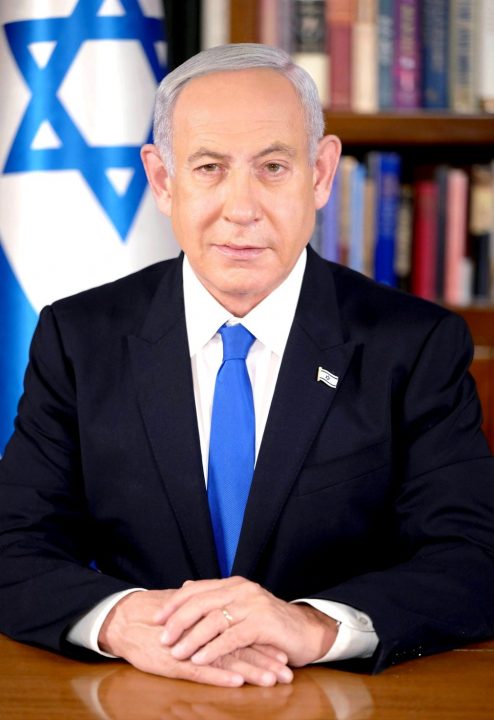
7th March 2012 – Letter to President of the Islamic Republic of Iran, Mahmoud Ahmadinejad
‘I request you once again, that you should focus all of your efforts and energies towards saving the world from a Third World War…You should not oppose another nation merely out of enmity and hatred…Indeed, if any country transgresses against your country, naturally you have the right to defend yourself. However, as far as possible disputes should be resolved through diplomacy and negotiations. This is my humble request to you, that rather than using force, use dialogue to try and resolve conflicts.’
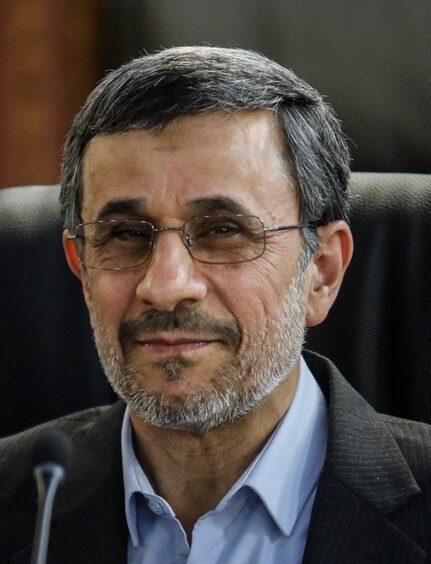
8th March 2012 – Letter to President of the USA, Barack Obama
‘My request to you, and indeed to all world leaders, is that instead of using force to suppress other nations, use diplomacy, dialogue and wisdom. The major powers of the world, such as the United States, should play their role towards establishing peace. They should not use the acts of smaller countries as a pretext to disturb world harmony.’
6th July 2012 – Address at the Paramount Banquet Centre in Woodbridge, Ontario
‘The standards of truth given by Islam are that your every word should be straightforward and accurate. It is only through the right word that confidence and trust can develop. It is trust that is a means for guaranteeing peace. If this golden principle is followed at every level then a spirit of peace and harmony will spread throughout all of society, from our domestic family units, to the wider world, and indeed, in terms of the relations between nations.’
4th December 2012 – Address at the European Parliament, Brussels, Belgium
‘Another key principle Islam teaches is that, in an effort to develop peace, it is necessary for all parties to never display any form of pride or arrogance. This was perfectly illustrated by the Holy Prophet (sa) when he famously said a black person is not superior to a white person and nor is a white person superior to a black person. Neither is a European greater or superior to any other national, nor are Africans, Asians or the people of any other part of the world. Differences of nationality, colour or ethnicity act merely as a form of identity and recognition. In the same way that we would not accept for our own rights to be taken, we should not be willing to accept it for others. Islam teaches that where retribution is required then it must be proportionate to the act of transgression. However, if forgiveness can lead to reformation then the option to forgive should be taken. The true and overarching objectives should always be reformation, reconciliation and the development of long lasting peace. If wealthy countries try to extract and utilise the wealth and resources of less developed nations to fulfil their own needs, then naturally, restlessness will spread. Where appropriate, the developed nations can take a small and fair amount in return for their services, whilst the majority of resources should be utilised to help the under-developed countries to raise their standards of living. They should be allowed to prosper and should be helped in their efforts to reach the same levels as the developed world, because then, and only then can peace be established. If the leadership of those countries is not honest, then the Western nations or developed nations should themselves monitor and organise the development of the country by giving them aid.’
26th September 2013 – Address at Mandarin Oriental, Marina Square, Singapore
‘Therefore, if one country does not possess the knowledge to extract or facilitate the use of its own wealth then those nations that have such knowledge and skills should assist them. Such help should be administered in a selfless manner without a desire to fulfil vested interests. Alliances or friendships with particular nations should not be a determining factor in deciding whether to assist other countries. Favouritism of any kind should not occur – rather the goal should be to help others stand on their own two feet. Unjust conditions should not be placed, whereby countries are not helped until they fulfil certain demands or until they agree to establish particular relations with third-party countries; nor should the countries that are providing technological assistance place such onerous conditions that mean the country receiving help is unable to derive full benefit from its own resources; and nor should such conditions be placed that result in the assisting nation receiving greater benefit from the resources of the other country. Such unjust acts are all against the teachings of Islam and lead to restlessness to develop and ferment.’
11th October 2013 – Address at the Princess Court Reception Centre, Melbourne, Australia
‘In the Qur’anic teaching that I presented it clearly stated that all attempts to establish peace amongst conflicting parties should be underpinned by true justice. Thus, it should not be that those tasked with establishing peace demand regime-change as a necessary pre-condition and that they then hand a particular group the keys to the government. If the party that has transgressed agrees to fulfil the rights of its citizens, and to treat them with fairness and equality, then those who have come as peace-makers should not set unjust or unwarranted conditions. They should not use more force than is proportionate or required because that will only lead to the situation spiralling further out of control. And so the point I make is that it is the duty of major powers and the United Nations to strive to bring about peace and reconciliation through equity and fairness.’
14th March 2015 – National Peace Symposium, UK
‘In Chapter 60, Verse 9, Allah the Almighty has said that those who do not persecute or seek to obstruct your faith should always be treated with fairness, respect and kindness. Thus, it is entirely contrary to Islam’s teachings to be cruel to those who are living peacefully amongst you in the Muslim countries – whether they are Christians, Jews, Yazidis, Pagans or the people of any other beliefs or even Atheists. Thus, these are the golden principles and teachings that are required to establish peace in the world. I have presented just a few aspects that highlight the beauty and nobility of Islam’s teachings. These teachings are the means of protecting all people in the world.’
6th October 2015 – Address at the National Parliament, Den Haag, Netherlands
‘In chapter 8, verse 62 of the Holy Qur’an, Allah has said that if your opponents have ill-intent and are planning to harm you, but thereafter decide to desist and move towards reconciliation, you must immediately accept their gesture and work towards a peaceful resolution, no matter what their motivation is. … Another important teaching of Islam, which we find in chapter 8, verse 68 of the Holy Qur’an, states that Muslims are not permitted to take prisoners outside of a state of war. ’
17th October 2016 – Address at the National Parliament, Ottawa, Canada
‘If peace cannot be established through dialogue, then the other nations should unite against whosoever is perpetrating injustice and use force to stop them. Once the aggressors adopt peace, they should not be humiliated and nor should unfair sanctions be levied upon them. Rather, in the interests of fairness and long-term peace, they should be permitted to move forward as a free society. … Regrettably, some major powers have not played their role in establishing peace, and have instead enacted unjust policies in order to serve their own interests. … At a broader level, the United Nations must also play its role in establishing peace in the world, unencumbered by politics, injustice or favouritism.’
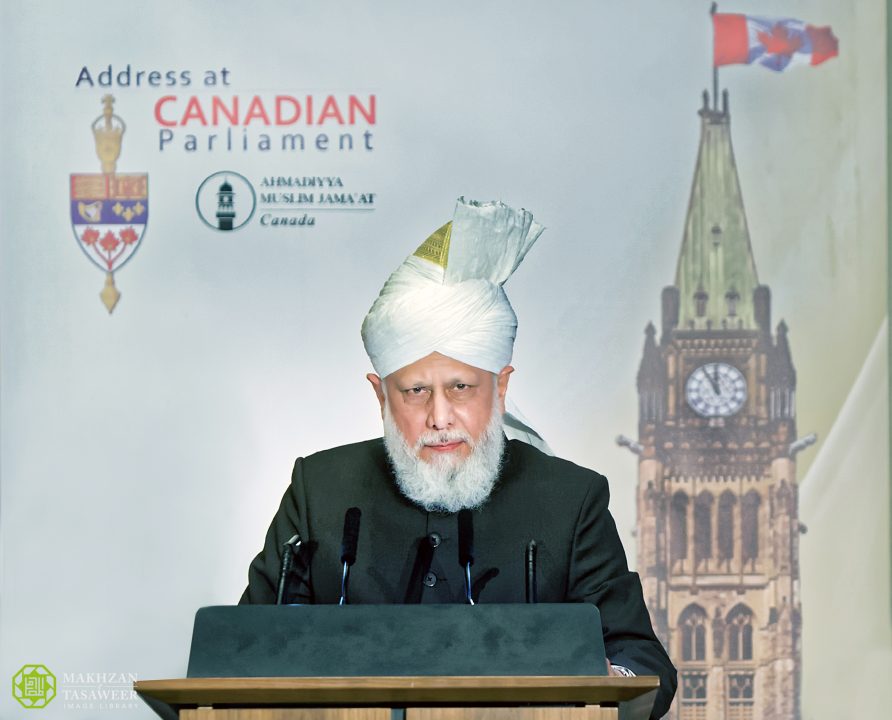
28th October 2016 – Lecture at York University, Toronto, Canada
‘In terms of collective trusts, one important aspect is the duty of citizens to elect representatives of the state who they consider to be of the greatest value to their nation. When it comes to elections or nominations, a person should not vote automatically for his ally or party member, rather they should consider who is the most qualified and suitable for the task at hand. Thereafter, those who are elected and handed the keys to government or power should exercise their duties with honesty, integrity and justice. This teaching is the model of democracy that Islam champions. In every society, there are mutual trusts and obligations placed upon all people, and for the society to function successfully, it is necessary for normal citizens and the leaders to fulfil their responsibilities towards each other with true justice.’
25th March 2017 – National Peace Symposium, UK
‘Accordingly, at another place, the Qur’an has instructed that Muslims should not speak against the idols or deities of others, because in reaction, they would curse Allah and a cycle of perpetual grievance would result. …For the sake of the good of mankind, governments should disregard fears that their economies will suffer if the arms trade is curbed. Instead, they should think about the type of world they wish to bequeath to those that follow them.’
7th March 2018 – National Peace Symposium, UK
‘Islam teaches that peace can only be achieved when all traces of ill-will and malice are removed from a person’s heart and replaced by a spirit of mercy, love and compassion for others…Certainly, this profound principle is just as beneficial today, both for Muslims and non-Muslims alike, that where force is required to stop an aggressor from inflicting cruelty, the action must remain proportionate and never enter the realm of seeking revenge or plundering the wealth of the vanquished.’
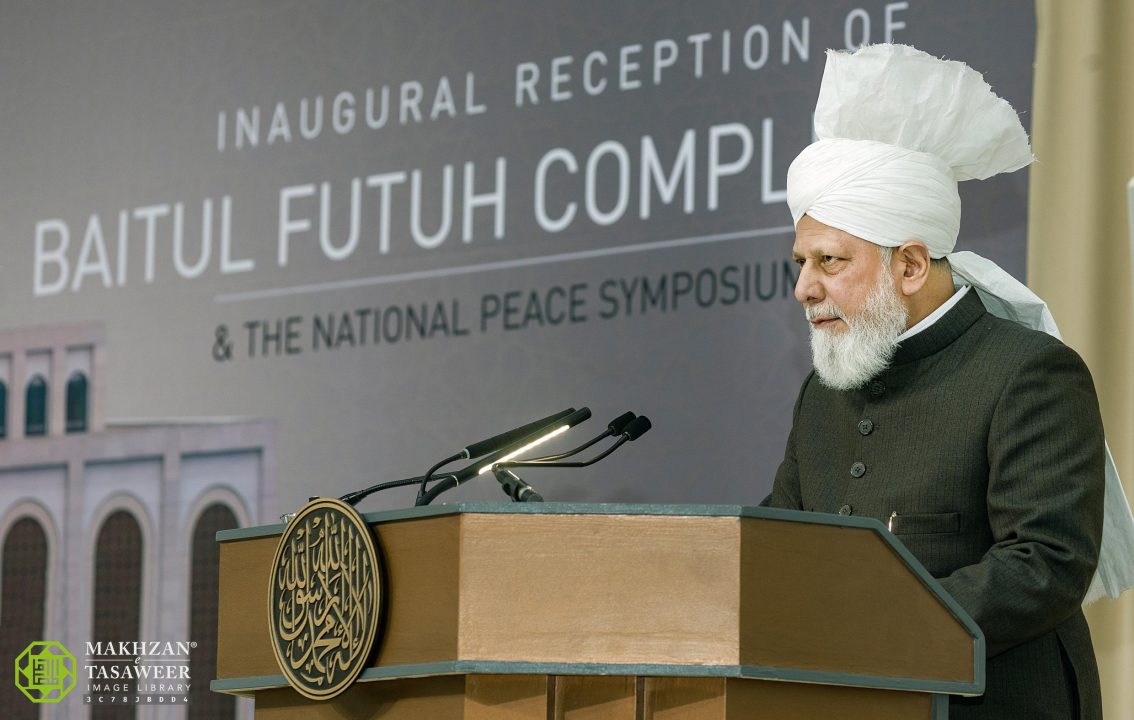
8th September 2018 – Address at the Annual Convention, Germany
‘Firstly, a basic Islamic principle is that where a Muslim aspires to live peacefully, he must also endeavour to provide peace and security to others…This is the true picture of Islam. It requires every Muslim to live peacefully and to contribute to their society…we now live in a time where a disturbance or conflict in any country has ramifications and consequences for the rest of the world. Thus, instead of fearing one another, we should strive to solve problems through mutual dialogue and with a spirit of tolerance and compassion.’
9th March 2019 – National Peace Symposium, UK
‘Not only do such weapons have the power to annihilate the countries targeted, but also have the potential to destroy the peace and stability of the entire world. Thus, it is imperative that nations and their leaders do not focus only on their own national interests, but consider what is best for the world at large…Furthermore, international institutions, such as the United Nations, should treat each country equally, rather than bend to the will of certain powers. This is the means of peace. This is the roadmap to a better world. This is the only way we can prevent mankind from sliding further towards grave peril.’
6th July 2019 – Address at the Annual Convention, Germany
‘At this critical moment in history, I believe with all my heart that there is only one way to bring an end to the great challenges of our time. There is only one path that can lead us to salvation and deliver us from this world of war and conflict and that is the path of God Almighty. Peace does not lie in power or wealth, rather peace lies in the cradle of God Almighty.’
28th September 2019 – Address at the Annual Convention, Holland
‘A golden principle given by the Founder of Islam (peace and blessings of Allah be upon him) is that a true Muslim should like for others, what he likes for himself. I believe that this simple and profound point, if acted upon, not just by Muslims, but by all people, is the means for everlasting peace in society.’
8th October 2019 – Address at the UNESCO Headquarters, Paris, France
‘Only if people have food to eat, water to drink, shelter, schooling for their children and healthcare will they be able to live in peace and escape the deadly clutches of frustration and resentment that lead people towards extremism. These are all basic human rights and so until we help people flee poverty and destitution, we will not see true peace in the world.’
22nd October 2019 – Address at the Adlon Kempinski Hotel, Berlin, Germany
‘Instead of seeking to place restrictions upon the expressions of faith, we should recognise that we are all part of one human race more connected than ever before. We should embrace our diversity and focus on establishing unity so that long-term peace can develop in the world.’
26th December 2021 – Address at the Annual Convention, Qadian
‘A big factor in destroying peace and harmony [in society] is arrogance. Arrogance leads to injustices being committed against others and their rights being usurped. Islam strictly forbids arrogance…A hallmark of a Muslim is that they supress their anger and forgive. This is a principle which is truly reflective of a Muslim; it is a principle which brings an end to all enmities; it is a principle which establishes a spirit of peace and harmony in society; and it is a principle through which the message of peace and security can spread in all directions.’
17th June 2022 – Annual Religious Freedom Summit, Washington D.C.
‘We must not let our differences divide us or to foster hatred and prejudice in society. Rather, we must individually and collectively raise our tolerance threshold and strive to ensure that justice prevails at all levels of society, both internationally and at a domestic level, and that the fundamental principles of freedom of belief and freedom of conscience are upheld and considered sacrosanct in all parts of the world.’
8th October 2022 – Inaugural Address of the Baitul Ikram Mosque, Allen, Texas
‘Wherever there is cruelty or injustice, we must condemn it; we must urge our political leaders that instead of propelling our nations towards war and rather than raising the temperature through threats of retribution and violence, they should endeavour to cool the tensions that exist both at an international level and within nations through diplomacy and wisdom. They must ensure that the peace and security of the world remains their paramount objective.’
4th March 2023 – National Peace Symposium, UK
‘Islamic teachings require every effort to be made to bring a peaceful solution to a conflict. For this reason, I believe it is essential to keep the channels of communication open and to strive to find mutually acceptable terms of agreement. If, however, the aggressor remains bent on causing misery and destruction and refuses to withdraw, Islam teaches that other nations should join together as one and use proportionate and necessary force to end the cruelties. … I firmly believe that this can only happen when mankind sets aside its selfish ways and materialistic desires and comes to recognise and worship the One God and strives to fulfil His rights and act upon His teachings.’
9th March 2024 – National Peace Symposium, UK
‘I firmly believe there is only one way to end these wars: by ensuring that justice prevails and that whatever settlements are made are based on equity as opposed to what better serves the interests of external powers…So, all nations involved in warfare, be they Western nations, those who harbour enmity for the Islamic world, or Muslim countries, should recognise that peace can only be established if they act upon these principles of warfare and conflict resolution.’

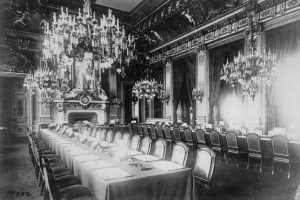
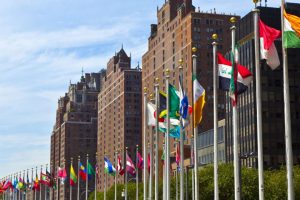
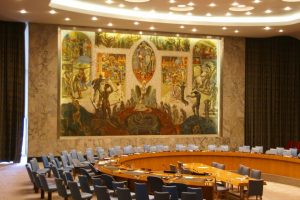
Add Comment